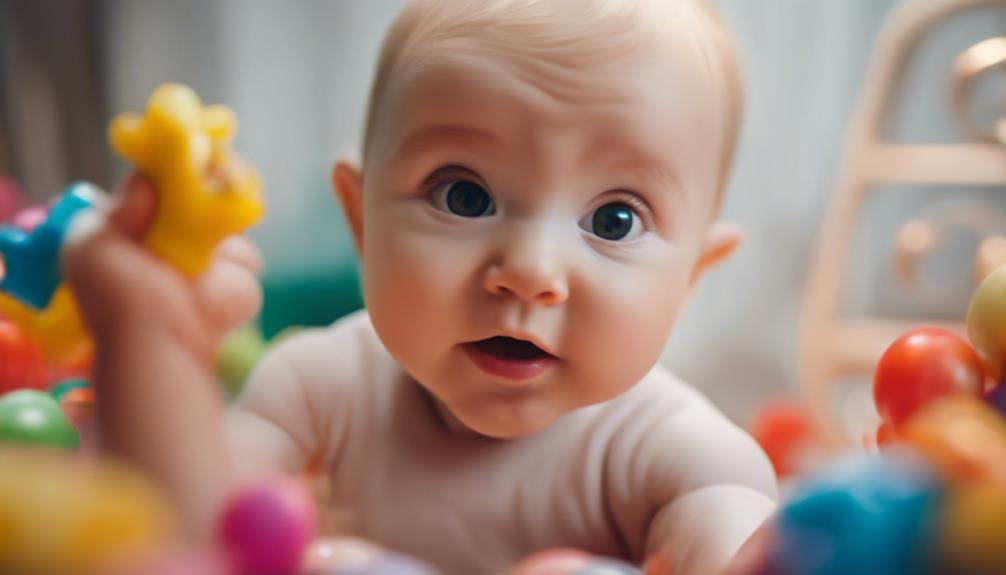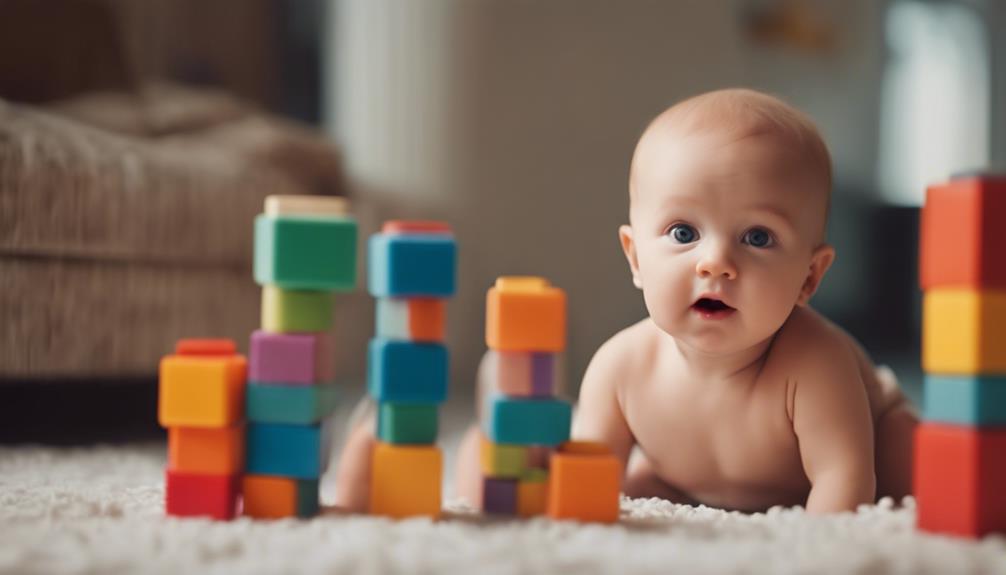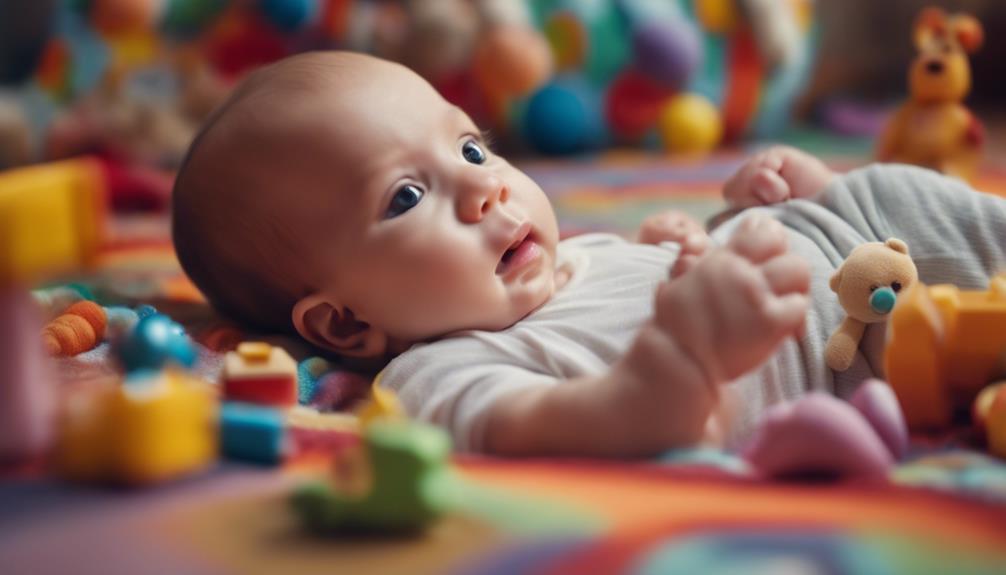Are you observing signs of intelligence in a infant? Keep an eye out for signs such as alertness and motor skills, quick responses, and a sensitivity to changes. Early signs of high intelligence may also manifest in attempts at communication, quick understanding of verbal cues, and making direct eye contact. Curiosity and a strong memory are important characteristics indicating problem-solving skills and the potential for cognitive development. Socially, intelligent babies may exhibit empathy, independence, and strong connections with others. While these signs suggest a child with intelligence, there is more to discover beyond the initial observations.
Key Takeaways
- High alertness and quick motor skills in response to stimuli.
- Early communication attempts and strong eye contact.
- Inquisitive nature, exceptional memory skills, and keen perception.
- Creative problem-solving abilities demonstrated from a young age.
- Remarkable social and emotional traits, including empathy and independence.
Alertness and Motor Skills
Intelligent babies often display high alertness and advanced motor skills, indicating early signs of cognitive development. These babies exhibit quick responses to sound, constantly wiggling and moving as they perceive their environment well. Their sensitivity to changes shows a keen awareness of the world around them. One key trait of these intelligent babies is their ability to quickly bond with family members, recognizing and engaging with familiar faces early on.
Moreover, advanced development in motor skills is a common early indicator of intelligence in babies. They may sit up earlier than their peers, showing a strong grasp of objects and physical coordination. This advanced motor skill development allows them to interact with their surroundings actively.
Along with their quick responses to sound and actions, these babies demonstrate a high level of alertness and engagement with their environment. Constant movement and exploration are typical behaviors in these intelligent infants, reflecting their active and curious minds.
Language Development

In the domain of language development, infants displaying high intelligence often exhibit early communication attempts through vocalizations and a genuine interest in words and books. These intelligent babies quickly grasp verbal directions and progress to forming sentences at an advanced stage compared to their peers.
Their ability to make direct eye contact early on, coupled with a sensitive response to sound and actions, highlights their strong empathy and emotional connections. In the sphere of advanced language development, intelligent babies showcase effective communication skills and a keen perception of their surroundings.
This early proficiency in communication not only reflects their intelligence but also demonstrates mature thinking patterns at a young age. Through their ability to establish meaningful connections through language, these babies exhibit a remarkable capacity for understanding and expressing themselves, setting a strong foundation for effective communication throughout their development.
Curiosity and Memory
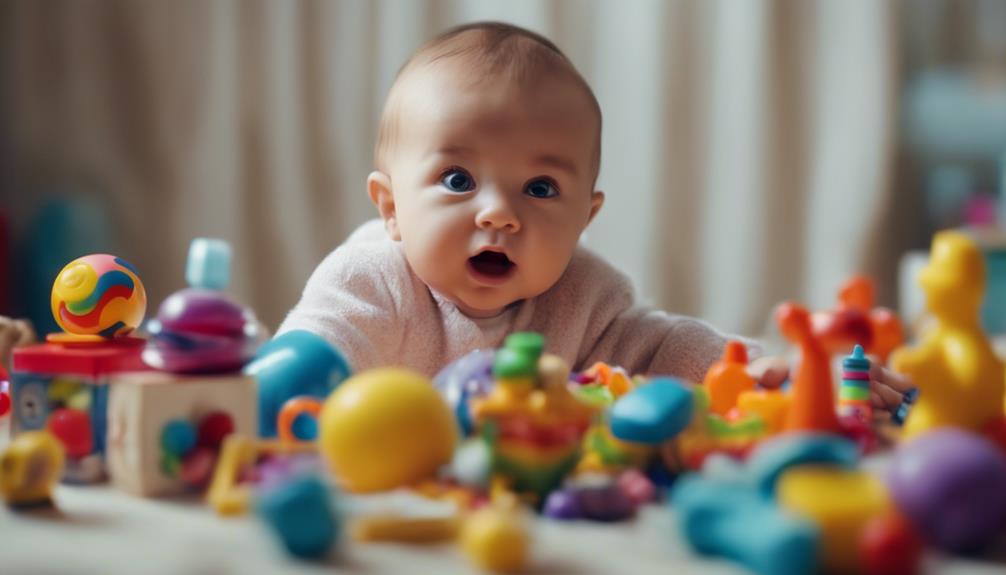
Exhibiting a strong sense of inquisitiveness and remarkable memory skills, highly intelligent babies demonstrate early signs of advanced cognitive abilities. From a young age, these babies show a natural inclination towards exploring their surroundings, constantly seeking new information and experiences. Their sharp memory skills allow them to remember details, faces, and events with impressive clarity, showcasing their heightened capacity for retaining and processing information.
Inquisitiveness in babies is a key indicator of higher intelligence, as it reflects their keenness to learn and understand the world around them. Babies with exceptional memory skills often exhibit advanced cognitive abilities, which contribute to their intellectual growth and cognitive development.
Encouraging and nurturing a baby's inquisitiveness and memory can further enhance their overall cognitive abilities, setting a strong foundation for future learning and development. By fostering these traits early on, caregivers can support the baby's journey towards exploring, learning, and expanding their cognitive horizons.
Problem-Solving Abilities
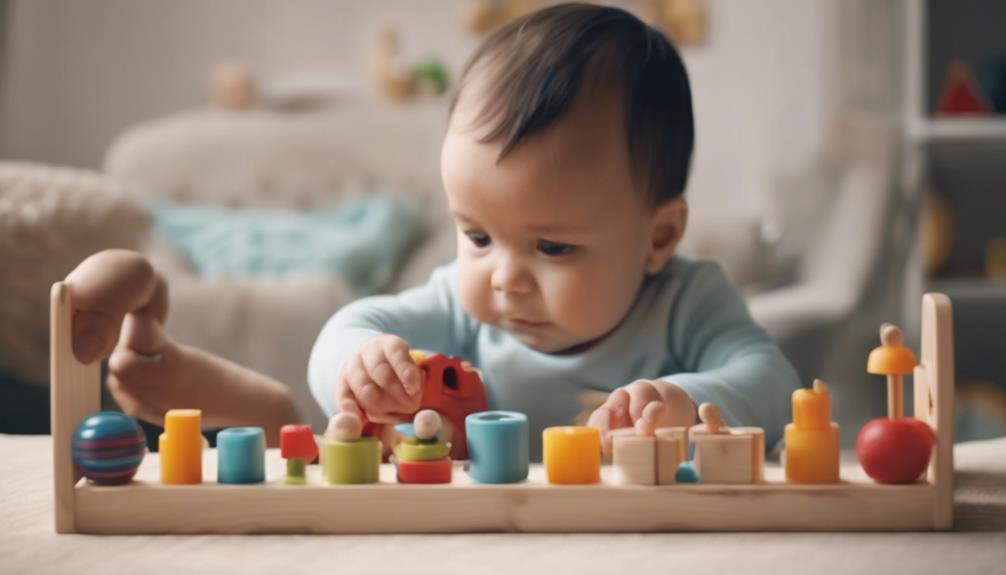
Developing problem-solving abilities in babies is a key aspect of nurturing their cognitive growth and intellectual development. Intelligent babies often exhibit exceptional problem-solving skills, showcasing their ability to find creative solutions to various challenges. Early indicators of problem-solving prowess can set these babies apart from their peers, highlighting their potential for exceptional abilities in this domain.
To enhance these skills, it's beneficial to provide age-appropriate challenges that encourage problem-solving tasks. For instance, creating mini-mazes or puzzles can stimulate the baby's problem-solving capabilities and foster their cognitive growth. Additionally, offering support and cheering them on during these tasks is essential for their intellectual development.
Social and Emotional Traits

Intelligent babies often display remarkable social and emotional traits that set them apart from their peers. These babies exhibit signs of empathy, emotional intelligence, and mature thinking at an early age, showcasing advanced social and emotional development.
They may prefer playing alone, demonstrating independence, self-sufficiency, and intense emotions. Intelligent babies also form strong emotional connections and interactions, indicating a high level of emotional intelligence.
Despite their independence, these babies often require encouragement and support to navigate their intense emotions effectively. Their ability to connect deeply with people and pets highlights their advanced social development.
Frequently Asked Questions
How to Tell if Your Baby Is Intelligent?
Want to know if your baby's bright? Look for early signs like quick developmental milestones, strong problem-solving skills, and intense curiosity. Pay attention to direct eye contact, alertness, and independent play. Trust your instincts!
What Is the Best Predictor of Infant Intelligence?
You know what really predicts infant intelligence? Early cognitive signs like alertness, eye contact, and hitting milestones early. These are strong indicators of a bright future. Pay attention to these cues and nurture that potential!
How to Tell if Your Child Is Gifted at Age 1?
Noticing signs of giftedness in your 1-year-old? Look for early language development, curiosity, and enthusiasm to learn. These traits can indicate intelligence at a young age, paving the way for a bright future.
How Early Do Genius Babies Talk?
You might be surprised, but genius babies can start talking as early as 6-8 months, with recognizable words forming by 12-18 months. They may use gestures and sounds to communicate before speaking.
Conclusion
To sum up, recognizing signs of intelligence in babies can help parents and caregivers provide the necessary support and stimulation for their development.
From alertness and motor skills to language development and problem-solving abilities, early indicators can offer valuable insights into a child's cognitive abilities.
By observing these traits and nurturing them appropriately, you can help lay the foundation for a bright future ahead.
Stay observant, stay engaged, and watch your little one thrive.


